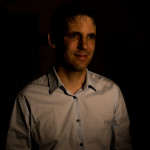In the past few years, an idea has grown in popularity among software developers: That “Deliberate Practice”, that is practice only for the sake of practice, is the best way to improve your programming abilities. Code retreats, for example, formalize this very strictly: Every 45 minutes, you delete all the code. While code retreats are fun and you can indeed learn a lot there, I still think that this idea of “Deliberate Practice in Software Development” is overrated.
When people argue that software developers should do deliberate practice, they usually say something like “Good musicians don’t just play beautiful music every day. They spend hours practicing scales.” But can you really compare music to software development? I think not. And yet I have not seen a single empirical study backing that deliberate practice makes you a better developer.
I know one example does not prove anything, but here’s how I try to improve my skills: I pick an interesting project and work on it. For weeks or months. And I try to ship something to the public at the end - Usually I decide upfront what I want to ship. And because it’s a side project anyway and there is no schedule pressure, I try to do really good work.
Working on a project for several weeks or months has some advantages to doing a Kata and then deleting the code. For example, I have to live with the decisions I made earlier. I have to refactor as I learn, and I have to grow an architecture. I tried learning clojure just by doing the examples from the book. For weeks, I just didn’t get it. Then I decided to start a project using clojure. Now I see progress in my learning every day I work on the project.
I said before that you can not compare practice in music to practice in software development. This is because musicians practice mechanical skills. This is compared to us developers learning to touch-type or learning the keyboard shortcuts of our IDEs. Of course we should practice these mechanical skills! And of course we should learn to recognize patterns and read code! But that does not mean that you have to deliberately practice programming itself:
It is said that it takes 10,000 hours to become an expert, although it might be more like ten years. But this does not necessarily mean that you have to do deliberate practice the whole time. Craftsmen usually learn on the job. They learn to create beautiful things while creating beautiful things. If software is a craft - and I really believe it is - we should create beautiful things (and maybe try to ship them) and learn as much as we can in the process.
I think, at least in this respect, programming has some things in common with photography. In photography, there is no sense in deliberately practicing something. Just go out often and try to shoot beautiful pictures. If the light is bad, you’ll automatically practice available light. If your subjects are moving fast - action pictures. And so on. So, in closing, I want to quote Mike Spinak, a greate nature photographer:
You might also be interested in...
- Cheap plastic drills The tools you use affect the way you work. Use great tools!
- Incremental development... of art: How an artist discovered incremental and iterative development.
- Learn more about how I can help you save money and earn money by improving your development practices on the job.
